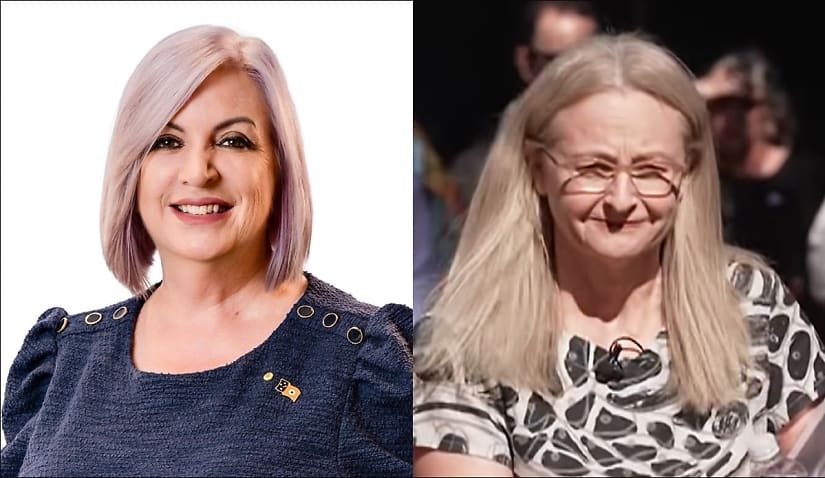Legal member associations stand behind Coroner Elisabeth Armitage of the Northern Territory, following an “extraordinary attack” in the Northern Territory Parliament last week.

In November of last year, Coroner Elisabeth Armitage handed down a landmark report into the domestic violence deaths of four Aboriginal women, which explored the systemic failures of services specifically designed to protect women in the NT.
Earlier last week, the NT government handed down its response to the coroner’s report, noting that 24 of the 35 recommendations made “are already in place”.
In the territory Parliament last Tuesday (29 July), and as reported by ABC, Prevention of Domestic Violence Minister Robyn Cahill said the Country Liberal government would support 21 of the recommendations in full and accept 11 in principle.
However, the national broadcaster reported, Minister Cahill said that, “overall”, the recommendations from the coroner were “uninspiring” and the report “failed so dismally to hit the mark”. The minister also criticised the approach of Armitage J to the inquest, saying it was “protracted” and that it resulted in “lengthy reports delivered in a manner seeming to lack the humility one might expect from an officer of the court”.
The coroner, Minister Cahill was reported as saying, “more focused on the reveal rather than the result”.
In a statement responding to the minister’s comments, Justice Steven Moore of the Supreme Court of Victoria said, in his capacity as president of the Australian Judicial Officers Association (AJOA), that NT Attorney-General Marie-Clare Boothby should defend Armitage following what the association labelled an “extraordinary attack”.
“Public discussion and debate about the work of the courts is an essential part of our democracy,” Moore J said.
“But it must not undermine judicial independence and the vital work of the courts. Personal attacks by politicians on members of the judiciary have that effect and only undermine public confidence in the courts.”
“In saying that the coroner lacked ‘humility’ and ‘bravery’, and that she was ‘more focused on the reveal rather than the result’, the minister unfairly belittled the integrity and professionalism of the coroner in important proceedings of great public interest,” His Honour said.
“There is no place for such personal attacks on judicial officers in our public debate”.
The Criminal Lawyers Association of the Northern Territory (CLANT) said it was appalled by the minister’s comments and called it “an extraordinary and deeply inappropriate intrusion by a member of the executive into the independent work of the judiciary”.
“This was not fair criticism,” CLANT said.
“It was a personal, politically charged attack on a judicial officer who is unable to defend herself publicly. These remarks represent a profound violation of the principles of judicial independence and the separation of powers, which are fundamental to our democracy and enshrined in the Australian Constitution. Judicial officers must be free to perform their duties without fear of reprisal or intimidation from the executive branch of government.”
“Let us be clear: coroners hold governments to account. That is their job.
“When ministers attack them for doing so, it is not just disrespectful, it is an attack on the checks and balances that uphold the rule of law. The government’s contempt for these principles should alarm every Territorian.”
Elsewhere, the Law Society of the Northern Territory expressed concern about the government’s commentary, noting that the independence and impartiality of the judiciary underpins the proper administration of justice in the NT.
The comments made by Minister Cahill, the society said, were an “inappropriate intrusion” by a member of the executive into the independent work of the judiciary.
“Those comments were directed towards an individual judicial officer, and the society is concerned that they may constitute a reprisal for publication of findings critical to the Northern Territory government,” it said.
The society’s president, Richard Henschke, said: “I repeat my earlier comments that the judiciary must be allowed to fulfil their role without negative consequences.
“A strong and independent justice system makes our community safer and fairer for all and is integral to the administration of justice.”
Lawyers Weekly approached Minister Cahill for comment earlier this week, but did not hear back.

Jerome Doraisamy is the managing editor of professional services (including Lawyers Weekly, HR Leader, Accountants Daily, and Accounting Times). He is also the author of The Wellness Doctrines book series, an admitted solicitor in New South Wales, and a board director of the Minds Count Foundation.
You can email Jerome at: